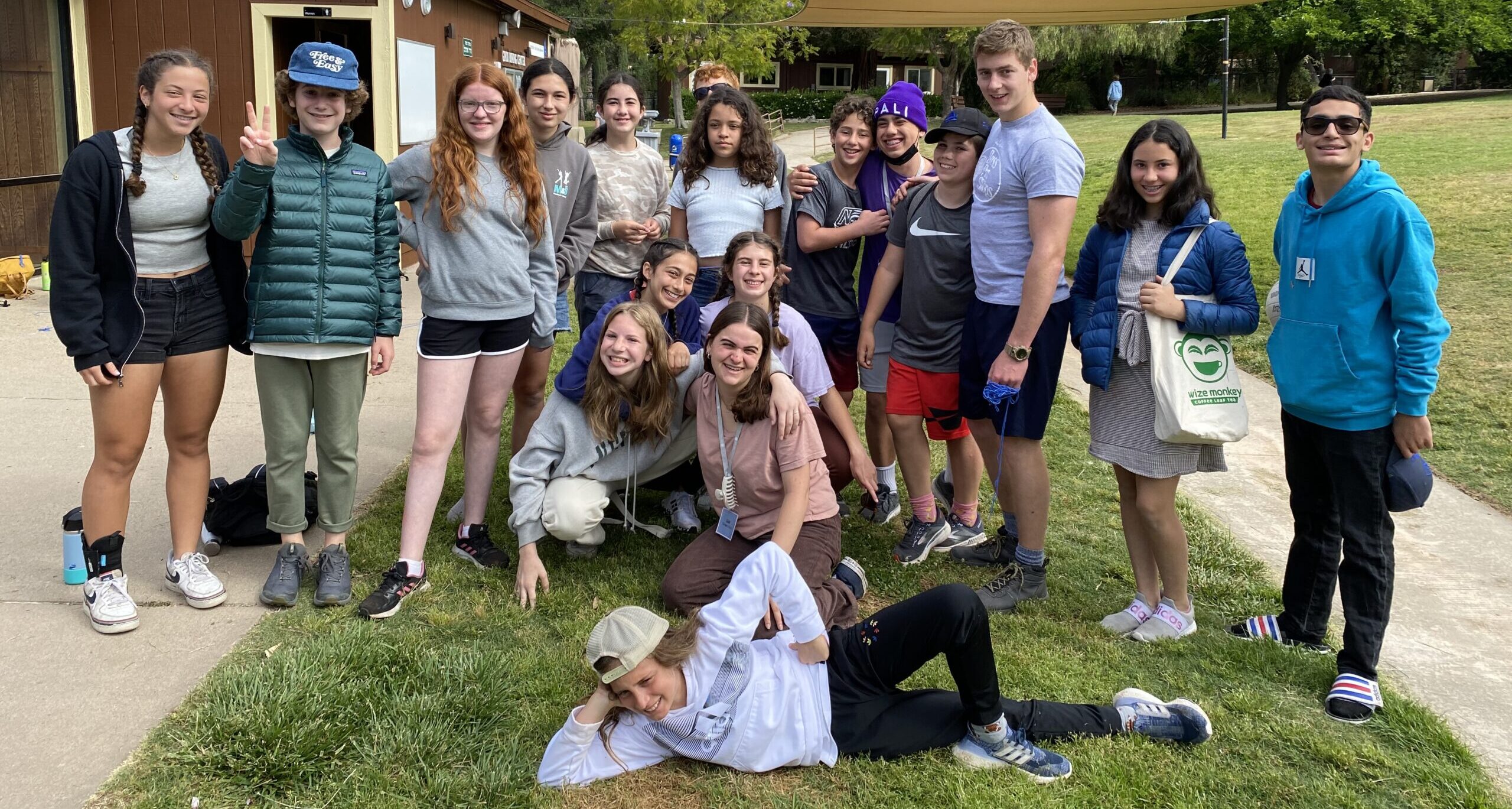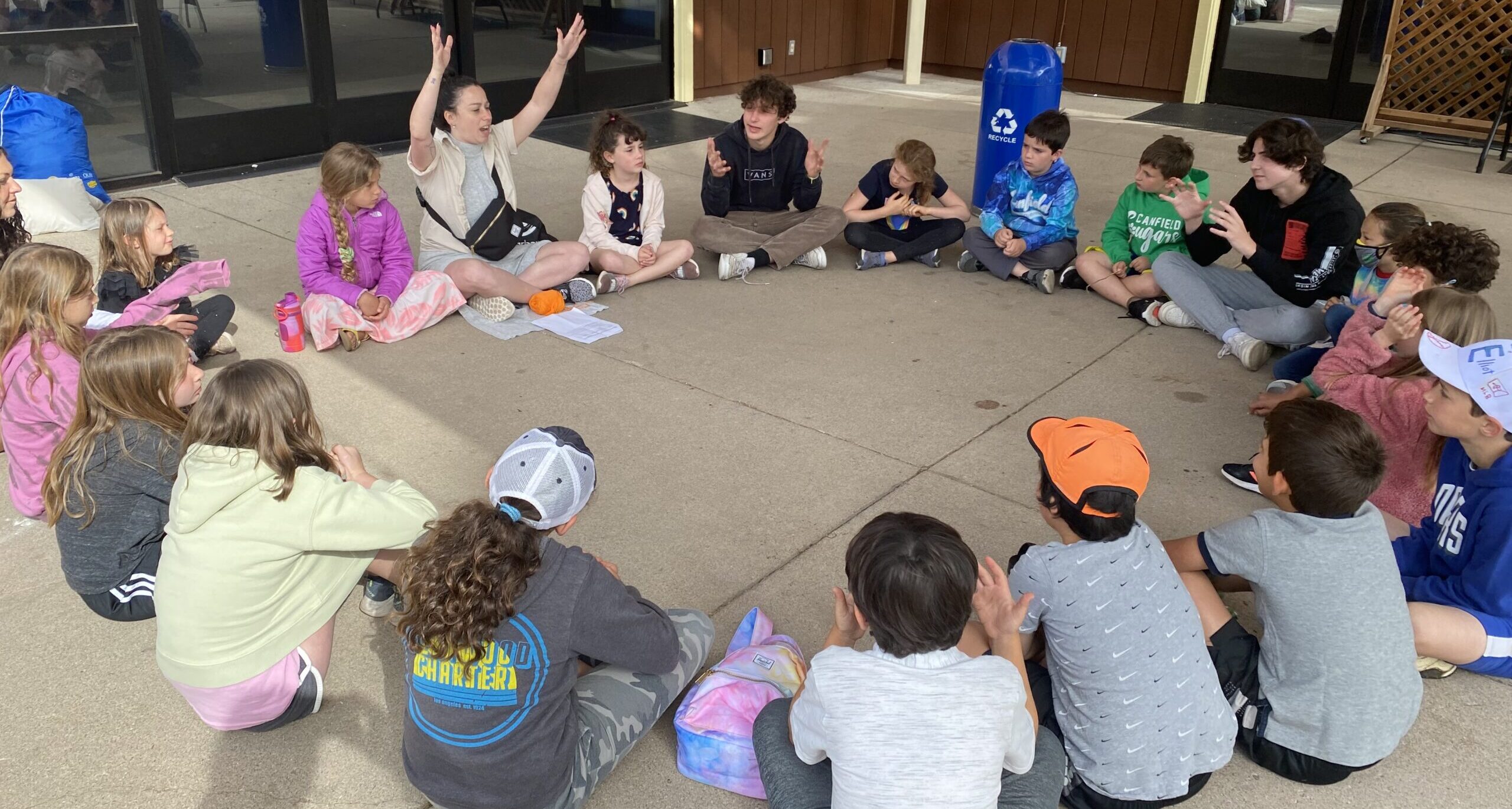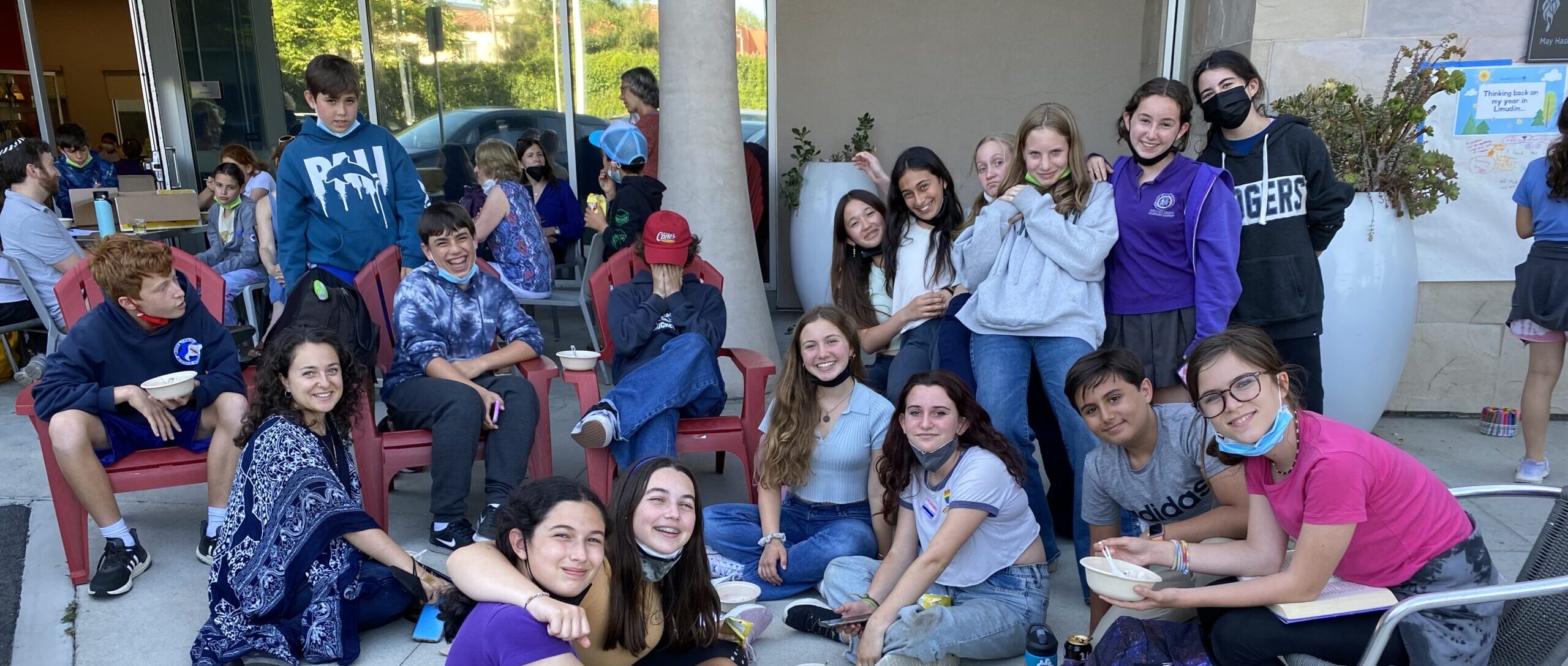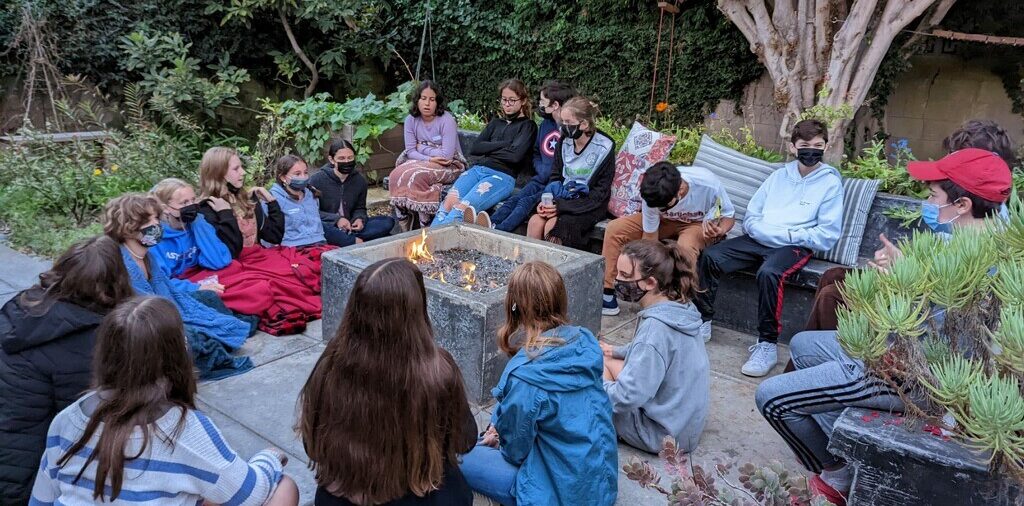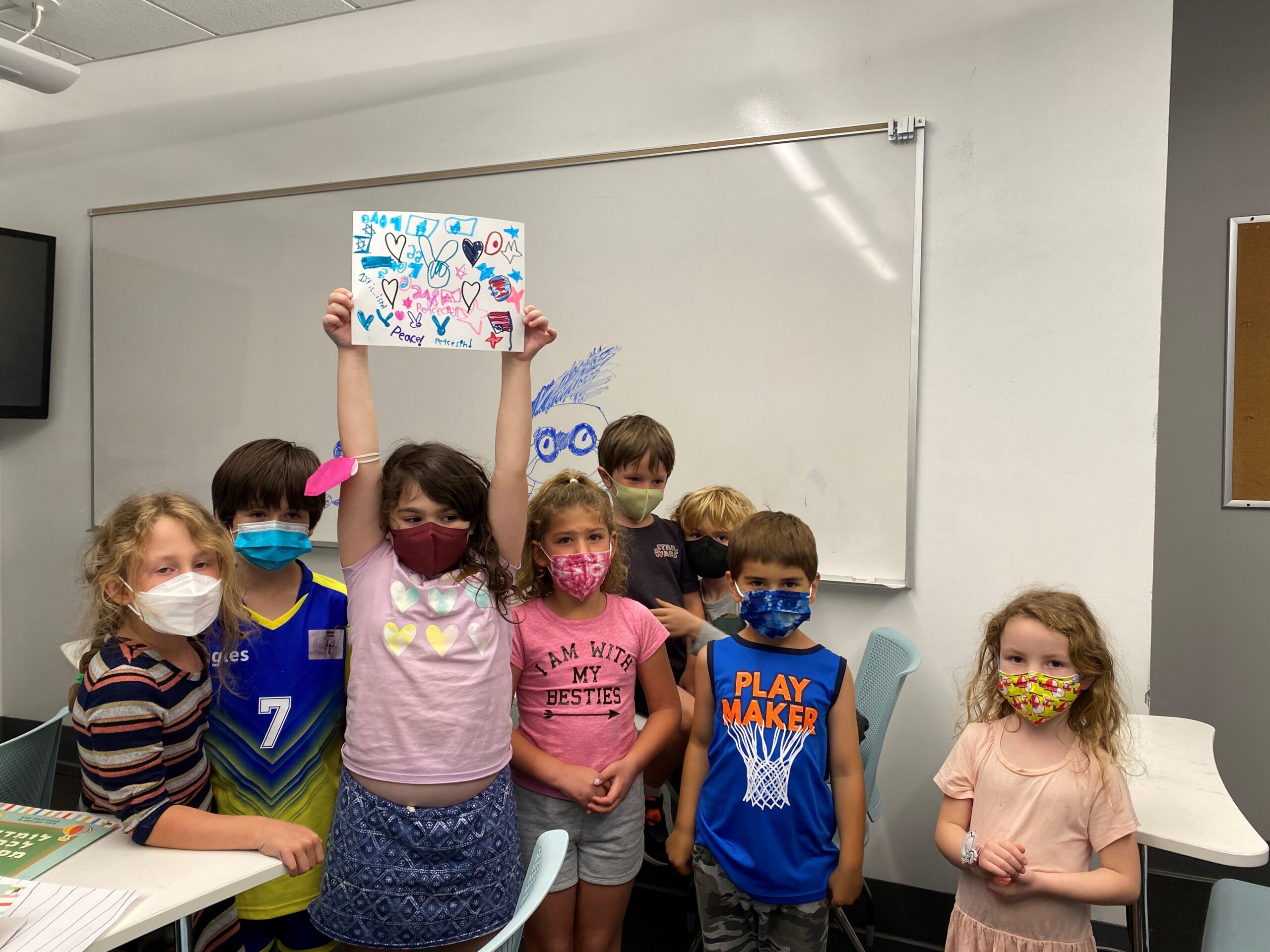Learn
Limudim: Kids’ Learning
Limudim inspires children and families to love Judaism, engage deeply with our Jewish tradition, and imagine a just community and world.
- Mission and Core Values
- Philosophy
- Our Program
- Curriculum
- Calendar
- Pricing & Registration
- Covid-19 Precautions
MISSION: Limudim inspires children and families to love Judaism, engage deeply with our Jewish tradition, and imagine a just community and world.
Core Values:
בצלם אלוהים – Betzelem Elohim – Image of God
We honor the uniqueness and inestimable worth of every individual and affirm that all human beings are created in the image of God. Therefore, we treat everyone with kindness, empathy and respect. We welcome students and families of all races, ethnicities, abilities, sexual orientation, gender identities, and expression. And we warmly welcome interfaith and multifaith families.
תלמוד תורה – Talmud Torah – Jewish Learning
We engage deeply with Jewish ideas and encourage critical thinking and debate. Rooted in tradition, we seek to uncover creative, new paths to God, Torah, and living a Jewish life of purpose. We honor each individual, recognizing that children learn differently.
צדק צדק תרדוף – Tzedek, Tzedek Tirdof – Pursuit of Justice
We believe that the active pursuit of justice and dignity for all is core to what it means to be Jewish. We integrate that belief into everything we do at Limudim.
תשובה – Teshuvah – Reflecting and Repairing
We believe mistakes and missteps give us the opportunity to grow and take responsibility for our actions. Through the process of teshuvah we recognize and acknowledge what we have done wrong, work to repair the situation and learn for the future.
אהבת ישראל – Ahavat Yisrael – Love of Israel
We seek to instill in our students a meaningful connection to the people of Israel, wherever they live, and to the State of Israel, the homeland and heartland of the Jewish people. We believe that love is strengthened by sophisticated reflection and nuanced thinking, and we work to help our students navigate the complexities of the Israel conversation by reaffirming our commitment to the vision of Israel set out in the Declaration of the Establishment of the State: a Jewish and democratic Israel based on freedom, justice and peace as envisaged by the prophets of Israel, a state ensuring complete equality of social and political rights to all its inhabitants.
כלל ישראל – Klal Yisrael – Jewish Peoplehood
We celebrate the rich racial, ethnic, cultural and pluralistic diversity of our local Jewish community and of Jewish people from around the world, learning about the many varied practices, history, and experiences of Jewish people. We believe that embracing this diversity, including our broad spectrum of religious observance, strengthens us as individuals and as a community.
Philosophy
Limudim brings the spirit of IKAR to our children, blending engaging learning, social justice and spiritual depth and allowing students to experience the joys of Jewish living. Our community is creative and inclusive, welcoming families of diverse backgrounds, affiliations, and lifestyles.
We honor and challenge our tradition and hope to inspire our students to find innovative paths to God, Torah, and a Jewish life of purpose. We also instill a sense of love of and responsibility to the Jewish people and to the larger world. We engage thoughtfully in the important questions facing us as Jews and as human beings. We see Limudim as the foundation of each child’s journey of Jewish learning and self-discovery.
Our Approach
Torah – We inspire our students to love Torah and to see it as a source of Jewish values and a guide for living a meaningful life. We teach Torah through the lens of justice; kids consider how the stories and instructions help us better understand ourselves, our responsibility to one another and to the world.
In the early years, students encounter stories from the book of Bereshit (Genesis) including creation and the patriarchs and matriarchs and then move into the stories of Shemot (Exodus). Third – fifth grade students begin to explore key stories of TaNaCh, Bible and Rabbinic commentary thematically, exploring such questions as “When should we speak up?” and “When is lying justified?” Older students also explore prophets, ethics, and Rabbinic literature including Mishna and Talmud.
We encourage questioning the text, and recognize that it is not necessary to believe that everything in the Torah is literally true to find truth and meaning in it. Students join the hundreds year old conversation from the mefarshim – scholars’ and rabbis’ interpretations of the Torah – and add their own interpretations in order to find personal and contemporary meaning from the text.
Tzedek (Justice) – Students will graduate Limudim with the understanding that the pursuit of justice is a fundamental value in Torah and Judaism. They will participate in acts of tzedek and develop practical skills which allow them to engage in making change as adults.
Israel – We instill in our students a meaningful connection to the people of Israel, wherever they live, and to the State of Israel, the homeland and heartland of the Jewish people. We believe that love is strengthened by sophisticated reflection and nuanced thinking, and we work to help our students navigate the complexities of the Israel conversation.
God – Students are encouraged to explore what God and spirituality mean to them, allowing for the fact that our relationship with and understanding of God can change over time. Tefillah (prayer) serves as an opportunity for meaningful moments – with ourselves, our community and with God. Conversations about God begin in PreK and continue throughout Limudim.
Jewish Peoplehood – We celebrate the rich racial, ethnic, cultural and pluralistic diversity of our local Jewish community and of Jewish people from around the world, learning about the many varied practices, history, and experiences of Jewish people.
In Limudim, we celebrate the Ethiopian holiday of Sigd, learn about Passover traditions and make haroset from around the world, and play Mexican dreidel on Hanukkah. Students have many opportunities to share and celebrate their family’s traditions.
Ivrit (Hebrew) – Hebrew gives us deeper access to the richness of our tradition, connects us to Israel and our global Jewish community, and is a part of Jews’ shared history and identity. Limudim graduates know common Hebrew words and phrases, can read Hebrew (including prayers and Torah) and leave Limudim excited to learn more. Kids in grades PreK-3rd learn Hebrew orally through Hebrew through Movement and begin formally learning to read in 2nd grade. By the time students are in 7th grade, they can read and chant prayers as well as their Torah and haftarah portions.
Saturday (Shabbat) Limudim 9:30-12:15
Limudim gives children and families the knowledge and skills to translate Jewish learning into Jewish living. We meet on Shabbat to help families feel the rhythm of the Jewish week and establish their own Shabbat practice. At Limudim, kids mirror what adults do on Shabbat: pray, learn Torah, and shmooze (hang out). Students engage in age-appropriate prayer services with IKAR’s rabbis as well as learn tefillah (prayer) and Torah with their teachers each week.
Tuesday Limudim + Hebrew 4:00-6:30
Through engaging activities and project-based learning, students celebrate and uncover Israel’s complexities, explore Jewish history through the lens of modern questions, and express their learning creatively during huggim (electives). Students also have the option of learning Hebrew in small groups from 6:00-6:30.
Shabbat Community Limudim (Holidays) 9:30-12:15
Community Limudim students attend Limudim one Saturday each month, joining our regular Limudim classes. If you are interested in enrolling your child in Community Limudim only, please talk to Rebecca about why this is the best choice for your family.
Ivrit (Hebrew)On both Saturdays and Tuesdays, students have specific periods dedicated to Hebrew. Saturdays are focused on Siddur (prayer-book) learning with their class. Each class has a designated Shabbat on which they will help lead a part of IKAR’s Shabbat service. In addition, students in Gan – Kitah Gimel (PreK –3rd) engage in Hebrew Through Movement.
On Tuesdays, K-2nd graders can join a Hebrew elective where they explore Hebrew letters, words and vocabulary through games and songs. 3rd-6th graders focus on Hebrew and prayer fluency. They participate in Elite Ivrit, where they earn bracelets each time they level up. Students are divided into mixed-age levels based on individual assessments. The teachers use level-appropriate books, materials, games, and other resources in order to make the learning challenging and engaging. Alternatively, students have the option of learning Hebrew online for 20-min/week with a tutor.
Family Education
At Limudim, we seek to help our children and families become lifelong learners. To this end, family education is integral to our program. Check out our calendar to save the date for our family programs including Thanksgiving Tikkun, Havdalah, grade-level Shabbats, and more!
Shabbat Limudim
Gan (PreK-K) – Bereshit (Genesis): Children explore the stories from Creation through the Joseph narrative through movement, games, songs, art, and drama.
Kitah Aleph (1st) – Bereshit (Genesis): Children learn the stories from Creation through Joseph, with a focus on key messages from each story.
Kitah Bet (2nd) – Shemot (Exodus): Children explore the Exodus narrative, considering what it means to make “brave choices.”
Kitah Gimel (3rd), Kitah Dalet (4th), Kitah Hey (5th): Students draw upon the stories of the TaNaCh (Bible) and Rabbinic commentary by grappling with essential questions such as “When should we speak up?” and “When is lying justified?” In doing so, they learn how the Torah and Jewish texts can serve as a guide for how they live and act in the world.
Kitah Vav (6th) – Neviim (Prophets): Students learn about the role of the prophets, with a particular focus on what each prophet can teach us about how to be our best selves and pursue justice.
Kitah Zayin (7th) – Rabbinics and Jewish Ethics: Students explore Oral Torah, Rabbinic laws, and commentary with a focus on Jewish ethical dilemmas.
Limudim Plus (8th -9th): Students explore topics such as relationships, Israel, anti-Semitism, and current events through the lens of ancient and modern Jewish texts.
Tefillah (Prayer): During shiur tefillah (tefillah lesson), students learn prayers in depth, focusing on both how to recite the prayers as well as key Hebrew words that offer insight into the meaning behind the prayers. Students also engage in age-appropriate tefillah each week.
Hebrew Through Movement (PreK-3rd grade): “Hebrew Through Movement” is a language acquisition strategy in which students learn Hebrew by hearing and responding to Hebrew commands. You’ll see students running, jumping, playing, dancing, and just having fun (as they learn Hebrew along the way)!
Zman Yisrael (4th-6th grade): Students engage in interactive activities, games, and discussions about Israel with our Shinshinit, our teen Israel specialist.
Tuesday Limudim
Kitah Kef (K/1st): Students explore what it means to live as Jews, focusing on Jewish rituals and blessings.
Kitah Bet (2nd) + Kitah Gimel (3rd): Students explore ethical mitzvot (commandments) such as “Shalom Bayit, peace in the home” and “Betzelem Elohim, in the image of God.” They also learn about ritual mitzvot such as the laws of Shabbat and kashrut (Jewish dietary laws). In addition, students engage in huggim (electives), in which they deepen their learning through the arts.
Kitah Dalet (4th) + Kitah Hey (5th): Students explore key moments in Jewish history, focusing on essential questions that help them think critically about their own Jewish choices. They also delve into their own family stories and celebrate the diversity of the Jewish people. In addition, they learn about Israel as a home for Jews and for people all over the world. Students also engage in huggim (electives), in which they deepen their learning through the arts.
Kitah Vav (6th): Students discuss issues of identity and Jewish responsibility, exploring what it means to become a Jewish adult. They also consider the complexities of Israel as a Jewish democracy.
Kitah Zayin (7th): Students engage in group B’nai Mitzvah projects. Working in teams, they identify issues they care about, learn with IKAR’s rabbis about what Judaism has to say about those issues, meet with IKAR’s director of community organizing to learn strategies for taking action, and then create an education campaign for our IKAR community. Additionally, in collaboration with Righteous Conversations Project, students learn about the Shoah through connecting with a survivor and creating original art based on the survivor’s story. Finally, students consider the continuous and complex conflicts in the Middle East and articulate their hopes for Israel’s future.
Hebrew
Formal Hebrew instruction begins in 3rd grade.
Option 1: In-person Hebrew learning on Tuesdays from 6:00-6:30.Option 2: Zoom Hebrew learning for 20 minutes/week with a private tutor.
We primarily follow the LAUSD calendar, and are closed on Jewish holidays.
Click here for the 2023-2024 Limudim Calendar.
Limudim registration is now open to IKAR members! Register here.
HOW MUCH IS TUITION?
View a full list of tuition amounts here.
LIMUDIM EZRA TUITION
Limudim will not turn any child away due to financial constraints, thanks in large part to generosity of the Horowitz/Weintraub Memorial Early Childhood Education Fund. Donate to the fund here. If you would like to speak to IKAR about your situation, please e-mail [email protected].
For more information about Limudim contact: Rebecca Berger, Senior Director of Education, [email protected].
Masks: Masks are optional at this time.
Exposure: If your child or someone in your family has been exposed, please do not send your child to Limudim until they test negative 5 days after exposure. We realize that this precaution is stricter than CDC guidelines. However, we recognize that exposure in Limudim can have a significant impact on your family’s ability to attend work/school.
